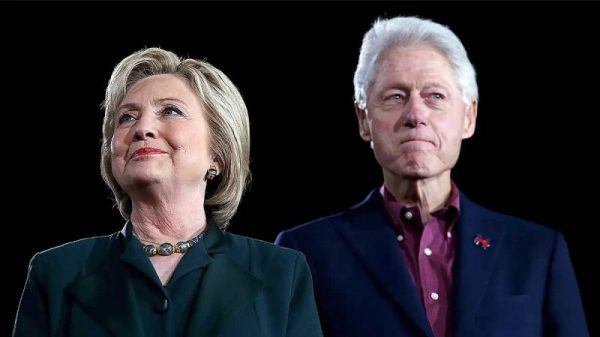The Supreme Court on Friday refused to clear the way for a Missouri law designed to prevent local and state police officers from enforcing certain federal firearms restrictions.
Only Justice Clarence Thomas noted that he would have sided with the state.
Missouri’s Republican-led legislature passed the far-reaching law in 2021, declaring certain U.S. gun regulations invalid and giving individual citizens the right to sue local and state governments that enforce the measures, which the lawmakers said infringe on their constituents’ Second Amendment rights.
The Biden administration sued the state to block the Missouri law, saying it is unconstitutional and undermines public safety.
The law, known as the Second Amendment Preservation Act, targets broad categories of federal gun laws that impose taxes, fees and registration requirements on certain firearms. The measure allows individuals to sue local or state agencies for up to $50,000 if they enforce the provisions at issue.
Solicitor General Elizabeth B. Prelogar told the justices that the law is unconstitutional because states are prohibited from usurping federal power and invalidating federal laws. The measure, she wrote, has already inflicted serious damage, in part because it punishes federal employees by disqualifying them from future state employment in Missouri if they have enforced the federal laws at issue.
“The Act has severely disrupted the federal government’s enforcement of federal law in Missouri, including its ability to apprehend dangerous criminals,” Prelogar wrote in a filing that urged the court to prevent the measure from taking effect.
Missouri Attorney General Andrew Bailey (R) told the court that the federal government does not have legal grounds to sue because the state law is enforced only against state and local agencies — not the Biden administration — when individuals sue for damages. The state has no obligation, he wrote, to help enforce federal laws. Bailey took issue with the federal government’s “aggressive, novel argument” and urged the justices not to allow federal courts to “second-guess all kinds of otherwise valid policies of states.”
“If the United States may sue any State or state official who expresses a contested view of the Constitution, then law professors, state lawyers, and all government officials have cause for serious concern,” he wrote.
The Missouri law was passed before the Supreme Court expanded Second Amendment rights in 2022 in a decision that declared a right to carry a handgun outside the home for self-defense. Next month, the justices are scheduled to hear another major gun case challenging a federal law that disarms certain people who are subject to domestic violence restraining orders.
In the Missouri case, a federal judge blocked the state law in March, calling it an impermissible attempt to preempt federal law and a threat to public safety.
After the law initially took effect, state and local officers withdrew from participating in Bureau of Alcohol, Tobacco, Firearms and Explosives task forces at least in part because of the law, an ATF official asserted in an affidavit. Several state and local law enforcement agencies indicated that they would no longer input data into a national system that helps investigators match ballistics evidence with crimes across the nation.
The U.S. Marshals Service reported that many state and local officers stopped cooperating with federal efforts to apprehend fugitives. Some had agreed to participate in fugitive operations, the Justice Department said in its filing, but then pulled back at the scene after a firearm was discovered.
Last month, the U.S. Court of Appeals for the 8th Circuit in a brief order denied the state’s request to allow the law to take effect while the litigation continues. That prompted Bailey to ask the Supreme Court to intervene.
Missouri noted in its filing that until the order from the appeals court last month, the state law had been in effect for more than six months while the case was under review.
The state’s argument to the justices echoed the successful defense of a Texas law banning abortion after six weeks of pregnancy. Like the Missouri gun law, the Texas law allowed enforcement by individual citizens, rather than state officials, giving them the right to sue anyone who helped a woman get an abortion after about six weeks of pregnancy.
Even before the Supreme Court eliminated the nationwide right to abortion, the court temporarily allowed the Texas law to take effect because of that unusual structure. The high court’s conservative majority said abortion providers and advocates trying to block the law did not have legal grounds to sue most state officials, because the officials would not be enforcing the ban.
In the Supreme Court’s brief order Friday, Justice Neil M. Gorsuch, joined by Justice Samuel A. Alito Jr., said he agreed with the high court’s decision to deny Missouri’s request because he said the district court’s ruling prohibiting enforcement of the gun law applies only to government officials and employees.
A court order binding private parties, Gorsuch wrote, “would be inconsistent” with the court’s decision in the Texas abortion case.
The case is Missouri v. U.S.
The Supreme Court on Friday refused to clear the way for a Missouri law designed to prevent local and state police officers from enforcing certain federal firearms restrictions.
Only Justice Clarence Thomas noted that he would have sided with the state.
Missouri’s Republican-led legislature passed the far-reaching law in 2021, declaring certain U.S. gun regulations invalid and giving individual citizens the right to sue local and state governments that enforce the measures, which the lawmakers said infringe on their constituents’ Second Amendment rights.
The Biden administration sued the state to block the Missouri law, saying it is unconstitutional and undermines public safety.
The law, known as the Second Amendment Preservation Act, targets broad categories of federal gun laws that impose taxes, fees and registration requirements on certain firearms. The measure allows individuals to sue local or state agencies for up to $50,000 if they enforce the provisions at issue.
Solicitor General Elizabeth B. Prelogar told the justices that the law is unconstitutional because states are prohibited from usurping federal power and invalidating federal laws. The measure, she wrote, has already inflicted serious damage, in part because it punishes federal employees by disqualifying them from future state employment in Missouri if they have enforced the federal laws at issue.
“The Act has severely disrupted the federal government’s enforcement of federal law in Missouri, including its ability to apprehend dangerous criminals,” Prelogar wrote in a filing that urged the court to prevent the measure from taking effect.
Missouri Attorney General Andrew Bailey (R) told the court that the federal government does not have legal grounds to sue because the state law is enforced only against state and local agencies — not the Biden administration — when individuals sue for damages. The state has no obligation, he wrote, to help enforce federal laws. Bailey took issue with the federal government’s “aggressive, novel argument” and urged the justices not to allow federal courts to “second-guess all kinds of otherwise valid policies of states.”
“If the United States may sue any State or state official who expresses a contested view of the Constitution, then law professors, state lawyers, and all government officials have cause for serious concern,” he wrote.
The Missouri law was passed before the Supreme Court expanded Second Amendment rights in 2022 in a decision that declared a right to carry a handgun outside the home for self-defense. Next month, the justices are scheduled to hear another major gun case challenging a federal law that disarms certain people who are subject to domestic violence restraining orders.
In the Missouri case, a federal judge blocked the state law in March, calling it an impermissible attempt to preempt federal law and a threat to public safety.
After the law initially took effect, state and local officers withdrew from participating in Bureau of Alcohol, Tobacco, Firearms and Explosives task forces at least in part because of the law, an ATF official asserted in an affidavit. Several state and local law enforcement agencies indicated that they would no longer input data into a national system that helps investigators match ballistics evidence with crimes across the nation.
The U.S. Marshals Service reported that many state and local officers stopped cooperating with federal efforts to apprehend fugitives. Some had agreed to participate in fugitive operations, the Justice Department said in its filing, but then pulled back at the scene after a firearm was discovered.
Last month, the U.S. Court of Appeals for the 8th Circuit in a brief order denied the state’s request to allow the law to take effect while the litigation continues. That prompted Bailey to ask the Supreme Court to intervene.
Missouri noted in its filing that until the order from the appeals court last month, the state law had been in effect for more than six months while the case was under review.
The state’s argument to the justices echoed the successful defense of a Texas law banning abortion after six weeks of pregnancy. Like the Missouri gun law, the Texas law allowed enforcement by individual citizens, rather than state officials, giving them the right to sue anyone who helped a woman get an abortion after about six weeks of pregnancy.
Even before the Supreme Court eliminated the nationwide right to abortion, the court temporarily allowed the Texas law to take effect because of that unusual structure. The high court’s conservative majority said abortion providers and advocates trying to block the law did not have legal grounds to sue most state officials, because the officials would not be enforcing the ban.
In the Supreme Court’s brief order Friday, Justice Neil M. Gorsuch, joined by Justice Samuel A. Alito Jr., said he agreed with the high court’s decision to deny Missouri’s request because he said the district court’s ruling prohibiting enforcement of the gun law applies only to government officials and employees.
A court order binding private parties, Gorsuch wrote, “would be inconsistent” with the court’s decision in the Texas abortion case.
The case is Missouri v. U.S.





















